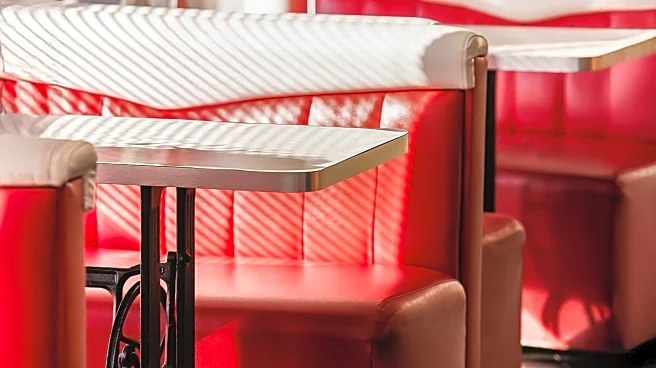What's Happening?
The Tesla Diner in Los Angeles, envisioned by Elon Musk as a futuristic dining experience, has been criticized for failing to deliver on its innovative promises. The diner, located at a Tesla supercharging station, offers a limited menu and lacks the anticipated technological features like robots and roller-skating waitstaff. Despite its sleek design, the diner has been described as a failure of imagination, focusing more on aesthetics than functionality. The concept was intended to provide a unique rest stop for electric vehicle owners, but has been seen as underwhelming by visitors.
Why It's Important?
The Tesla Diner's reception highlights the challenges of integrating technology and innovation into traditional industries like dining. Musk's attempt to revolutionize the diner experience reflects broader trends in consumer expectations for novelty and convenience. The criticism may impact Tesla's brand perception, as it suggests a disconnect between Musk's visionary ideas and practical execution. This development could influence how other companies approach the integration of technology into everyday experiences, emphasizing the need for functionality alongside innovation.
Beyond the Headlines
The diner serves as a microcosm of Musk's broader approach to innovation, which often prioritizes spectacle over substance. This critique may prompt a reevaluation of how technology is used to enhance consumer experiences, particularly in industries resistant to change. The diner also raises questions about sustainability, as it does little to address environmental concerns despite Tesla's focus on renewable energy. The emphasis on nostalgia and superficial design may reflect cultural trends in consumerism, where novelty is often valued over genuine improvement.












